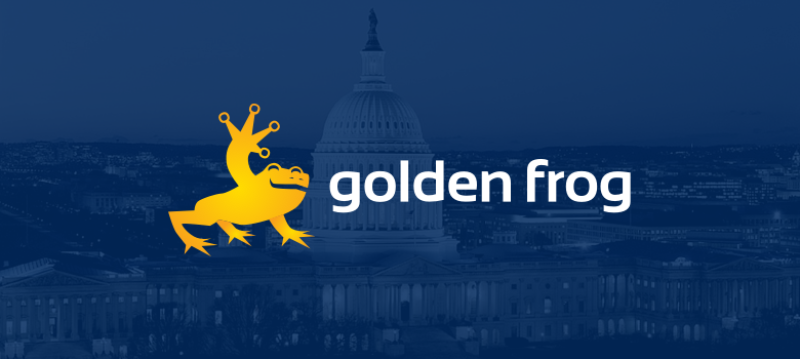
Policy
Golden Frog Meets with Congressman McCaul, Discusses Business Implications of Privacy Regulations
Our trip to Washington DC continues! We synced up with Congressman Michael McCaul’s staff this morning, and had an interesting conversation about the business implications of the United States’ current privacy regulations — or lack thereof. Many companies in the United States are losing international business due to privacy concerns created by outdated or flat out non-existent privacy laws. During our discussions we witnessed a repeated sentiment of uneasiness, as well as concerns surrounding the United States’ lack of respect for privacy for those who aren’t citizens (and lack of governmental regulation to protect this privacy). The key takeaway? The international business community lacks confidence in the United States’ ability to protect consumer privacy and data, resulting in a hesitancy to do business.
European Concerns with US Privacy Laws
In Europe there is also a sentiment of fear of doing business with US companies, as our data laws are in many ways outdated (take the Email Privacy Act, for example. This bill was only recently passed in the House and is still not law, but aims to update privacy regulations for online communicaitons which haven’t been updated since 1986). We have also taken a lax attitude in giving consumers control over privacy, as the recent blocking of privacy regulations for ISPs illustrated. In contrast, much of the EU has taken great strides to protect consumer privacy, enacting things like the GDRP, rejecting data retention and through various other measures. Some European countries like Switzerland also stand out as world leaders in terms of how they treat privacy (which is why Golden Frog is incorporated in Switzerland!).
China and the “Economic Firewall”
Other countries are taking a different approach, making the cost of business very high for US companies. Take China, for example – by enacting strict laws for companies operating from outside the country they have built an “economic firewall” in essence, making it harder to do business there and increasing the cost of doing business. Russia has also enacted strict provisions requiring any company operating in the country to store data locally on their servers – which not only creates its own set of privacy concerns but increases the cost of business substantially. Conversely, it’s easy for other countries to come into the United States and do business here.
Golden Frog’s Stance
It’s very concerning that there’s a culture of fear and uncertainty about doing business with US-based companies due to privacy laws. At Golden Frog, we have long advocated that privacy is a right and encryption is the Second Amendment for the Internet. We strongly believe in privacy and security for all – and at Golden Frog we continue to actively fight for this privacy and security under all circumstances. Although privacy violations like the recent blockage of ISP privacy regulations contribute to our business and VPN business in general, we still advocate for these stronger protections to be in place. We see the surge in VPN use as a sign that people are “voting” with their wallets – expressing their fear, concern and frustration by taking an action to protect their privacy themselves. If people truly didn’t care or weren’t concerned, they wouldn’t invest in VPNs and other tools to secure their information.
All in all, it’s clear people in and outside the United States desire privacy and protection of personal data and information. Other countries are expressing hesitation to do business in the United States due to our surveillance and lenient laws, and our own citizens are expressing concern by turning to tools like VPNs in the absence of governmental regulation (not to mention expressing this viewpoint publicly – a recent Politico poll reflected that only 43% trust broadband companies with personal information, and a huge 77% are uncomfortable with companies selling data for advertising purposes. The message is clear: It’s time to demand better privacy protections in the United States.
Better protections will be better for business and consumers around the world. Our conversations this morning solidified this view, and emphasized it’s more important than ever to continue fighting for the Internet privacy we are all entitled to. Even the United Nations acknowledged that privacy is a fundamental right.

